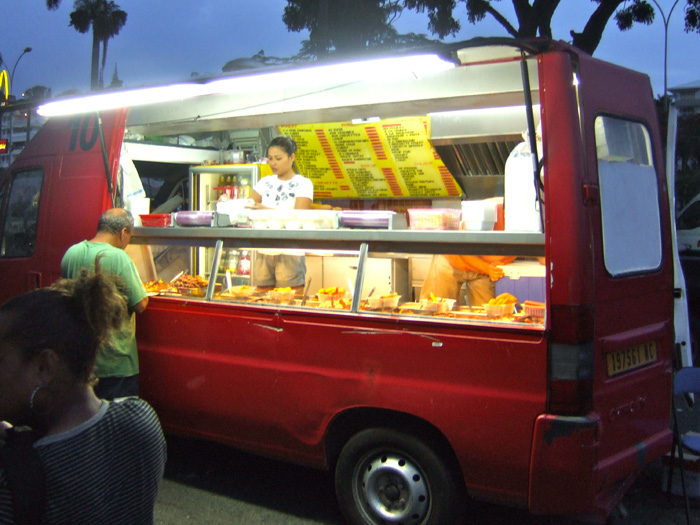Emerging Risk
Mobile Kitchens Serving Up Big Risks

La Parrillada Chapina, one of about 200 food trucks operating in the Philadelphia area, was conducting business as usual on the evening of July 3 when its kitchen turned into an accidental bomb.
Fire from the truck’s cooking grills ignited fumes leaking from a 4-foot propane tank used to power its equipment. The resulting explosion engulfed the entire truck and sent flames shooting across the street and the tank soaring into a nearby backyard.
Eleven people were injured, some critically, including the owner and her daughter as well as several passers-by.
Video: Watch the incredible video from Philadelphia that shows a food truck exploding into a ball of flames.
“Propane is a particularly volatile material,” said Jeff Hallman, vice president, Restaurant Programs of America. “It tends not to disperse into vapor in the same way that gasoline does. Rather, it tends to collect in the lowest lying area and has an extremely low flashpoint, meaning that the smallest spark will ignite it.”
The incident revealed a gap in safety procedures and inspection regarding such tanks.
Philadelphia health inspectors ensure food trucks’ compliance with health codes, while the Department of Licenses and Inspections issues the necessary commercial business licenses, according to the Philadelphia Inquirer. But no one has clear jurisdiction over inspection of the propane tanks.
“I am not sure what, if any, regulations and inspection protocols are in place for propane powered mobile cooking facilities,” Hallman said. (Hallman is a Risk Insider, whose initial article talks about how an over-reliance on modeling is diminishing the art of underwriting.)
The rapidly rising number of food trucks across the nation only increases the likelihood of tragedy and the need for tighter safety procedures.
La Parrillada Chapina is one of about 200 food trucks operating in the Philadelphia area, up from a mere 12 just three years ago. These mobile restaurants aren’t just doling out hot dogs and cheesesteaks.
They’ve become popular for providing unique cultural dining experiences, cooking up the type of specialty items with quality ingredients usually sought by foodies in niche cafes, all from kitchens the size of closets.
Duane DeBruyne, a spokesman for the Federal Motor Carrier Safety Administration, told the Inquirer that “street-side food trucks are exempt from federal regulations concerning propane if the tanks are under 220 pounds, or 440 pounds per vehicle.” La Parrillada Chapina had two 100-pound tanks.
A similar explosion occurred in New York City in 2011, when a food truck burst into flame after a car accident. In 2012, a food truck exploded at the Canadian National Exhibition, causing $30,000 in damages but no injuries. Just last year, a propane leak sparked the explosion of a food truck at a high school football game in Fresno, Calif.
No deaths have occurred from these accidents, but the force of these explosions certainly makes that a possibility.
“Accidents like this can actually help to further safety regulations to protect the public and food truck operators,” said Denny Christner, principal of Bay Risk Insurance Brokers and its wholly-owned affiliate, Insure My Food Truck. (See his profile as one of the 2014 Power Broker® winners here.)
“It’s also a good time for food truck owners to closely look at their insurance coverage to protect them personally, to protect their business and to protect their employees,” he said.
Christner outlined a combination of general liability, commercial auto and workers’ comp coverage to cover losses in the event of an explosion. General liability would cover third-party injury and property damage, usually up to a limit of $1 million, he said, after which an umbrella policy would kick in. Commercial auto would cover the truck itself as well as its kitchen modifications and equipment.
Workers’ comp would cover first-party injury — an important piece that owners may not consider since many food trucks are family-run.
“Many food truck owners think they are exempt because they hire family, but this is not the case unless the family members are owners of the business,” Christner said. “It is very rare that we see food trucks offering health insurance to their staff. All on-the-job injuries would need to be covered by workers’ compensation insurance.”
According to Christner, most gourmet food trucks carry general liability policies because the venues they serve usually require at least $1 million of coverage per occurrence. They also carry auto liability because they know they need it to protect their business. However, “because it’s hard to make a decent profit in this business, we find that many food trucks may carry low limits to keep their insurance costs down.”
“It would be a good time,” he said, “for food truck owners to ask their agent or broker, ‘How would my current coverage respond to a loss like the explosion that just occurred?’ and ‘What can I do to increase coverage or add protection should my current coverage not be sufficient?’ ”
(Photo by George Garrigues)










